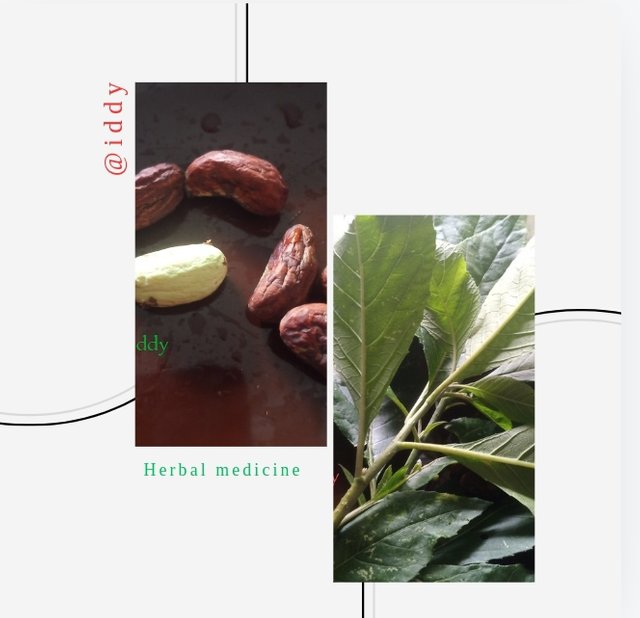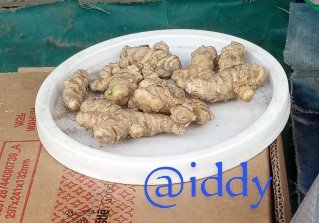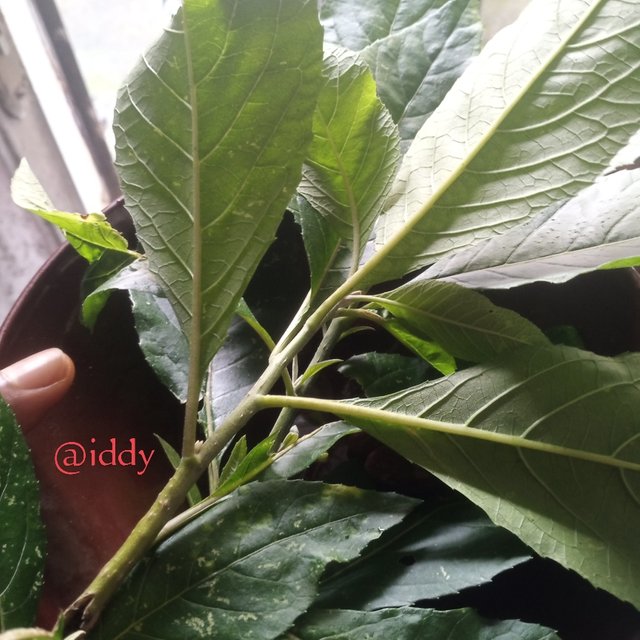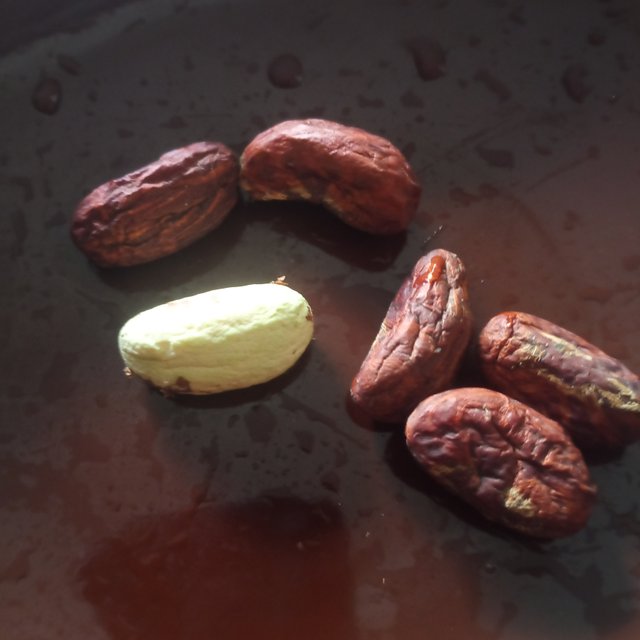SLC S21 Week 1 - A Comprehensive guide to Herbal Medicines
It's a thing of Joy to participate in week 1 of season 21 of the steemit learning challenge. This course centers on herbal medicine, its forms, the health benefits of herbal medicine and modern medicine, and their side effects. This post is practical, and the herbs used are the ones commonly found in my Locality.

Research Assignment: Research and write a history of herbal medicine in your culture or region.
I am an Ibibio man, precisely from Akwa Bomb state in Nigeria. It is believed that my culture has been in existence in Nigeria since 7000 B.C.E., and at this time, the Ibibio people never knew about unconventional or modern medicine; they rather used roots, leaves, and some vegetables to treat diseases like malaria, common cold, diarrhea, etc.
The Ibibio people began using herbal medicine in 7000 B.C.E., and doctors then were herbalists who used natural remedies to cure diseases.
In 1850, Chief Udoetuk Udoedo in Mbierebe Akpawat, Ibesikpo Asutan In Akwa Ibom state, Nigeria was known as a proficient herbalist who used roots and leaves to heal people of Ibibio from various diseases. For example, He used Nsukakara, known as Spondias Mombin Linn, to cure Ibibio people of gonorrhea, dysentery, and severe cough.
In 1900, OKON Udoh in my Locality was a famous herbalist who treated people with herbs. For example, we are told that he used Efiat, which is generally known as bitter kola or Garcinia kola, to cure people from severe cough and poisoning.
Unconventional medicine or modern medicine was introduced in the Ibibio land when the colonial era began in 1882. Even at that, the Majority of the Ibibios prefer to be treated with herbal medicine, and the majority are herbalists.
Comparison Task: Create a table comparing the benefits and side effects of modern medicines vs. herbal medicines for common ailments (e.g., cold, headache)
The table below compares the benefits of herbal medicine and modern medicine;
| Herbal Medicine | Modern Medicine |
|---|---|
| 1) Herbs such as ginger, thyme, bitter kola, etc, are used for treating cough | Modern Medicine, such as Hydromet and benzonatate, etc. Are used for treating cough. |
| 2) Herbal medicines are natural and cause fewer side effects to some, and no side effects at all to others | The healing process from Modern medicine is rapid, but are not natural and can cause side effects |
| 3) Herbs such as ginger boost immunity, and a common man can access it | Supplements like vitamin D boost immunity but a common man may not afford it |
From the table above, we can see that both herbal medicine and modern medicine are beneficial, but the difference is herbal medicine is natural while modern medicine is artificial which may cause some serious side effects
The table below compares the side effects of herbal medicine and modern medicine;
| Herbal medicine | Modern medicine |
|---|---|
| 1) Bitter kola has side effects such as nausea or upset stomach in some people | Side effects such as constipation, stuffy nose, itching skin, and drowsiness are found with benzonatate. |
| 2) Ginger has side effects of heartburn in a few people | lack of energy, headache, confusion, feeling anxious, and dry mouth are some side effects that come with taking Hydromet |
| 3) Ginger has side effects such as dizziness and stomach upset for a few people | The chemicals used for preservation in Hydromet and Benzonatate etc can cause negative effects in people |
From the table, we can see that the effects of herbal medicine are not serious and are less, but the ones from modern medicine are much and serious
Herb Identification: Choose 3 herbs from your kitchen, like mint, ginger, or turmeric, and list their health benefits. Mention the recipes where you have used these herbs.
In my kitchen, I have identified the following as herbs;
- Ginger
- Bitter leaf (vernonia amygdalina)
- Bitter kola ( Garcinia kola)
- It helps to facilitate digestion, curb nausea, and cure the common cold because gingerol contains
- It serves as an anti-inflammatory and antioxidant
- It helps to reduce weight in people who are overweight
- It helps to reduce pain (osteoarthritis)
- It reduces blood sugar
- It reduces heart diseases

- It contains vitamin C which serves as an antioxidant in the human body
- It is used to cure diabetes and diarrhea
- It cures or reduces stomach pains
- It helps to prevent prostate cancer
- It helps to enhance sperm quality

- It is used to cure severe cough
- It serves as an anti-inflammatory and antioxidant because of the amino acids, flavonoids, and tannins it possesses
- It protects the lever
- It contains aphrodisiac
- It helps to battle bacterial and viral infections

- I used ginger to prepare tea together with limes to reduce weight
- I used ginger to cook stew
- I used bitter kola to prepare tea together with honey to reduce or cure cough
- I eat bitter kola as a snack
- I dip it in alcohol and drink
- I used the bitter leaf to cook soup
- I extract the pigment and mix it with water to drink as green tea
Forms of Herbs: Write about the different forms of the herbs.
I Chose The following forms of herb to write about as;
Teas and infusion herbs: This is a form of herb that is produced through dipping the leaves, roots, balk, etc, or specified herb in water and extracting the juice from the insoluble part. For example, to cure cough, one can blend bitter kola with water, put it on fire for some minutes, then remove the insoluble part or chaff from the solution. Put the solution in a cup, add honey, and drink as tea.
Tinctures: This is a form of herb that is produced by dipping the herb( leaves, roots, etc) in alcohol. For example, to treat diabetes, one can deep bitter leaf in alcohol, and take 10ml three times daily.
Powder: This form of herb can be produced by drying the specified herb and grounding or pounding it into powder. For example, one can slice ginger into smaller particles and dry it in the sun or oven, then grind it or blend it into powder, take one teaspoon into a glass of hot water, add honey, and Drink it as tea for the common cold.
Oil: This form of herb can be produced by putting the specified herb in oil to become soluble. For example, Tumeric can be dipped or soaked in oil for its pigment to move into the oil through osmosis, then one can rob it on his body for removal of dark spots.
Safety Report: Pick one herb and research any potential side effects and how to avoid them.
I chose Tumeric
The following are potential slight side effects;
- Stomach upset
- Nausea
- Dizziness
- Diarrhea
The side effects are normally or usually caused by overdose. Therefore, it is advisable to take it moderately; for example, 8g daily for about two months is commendable, and even 3g daily for three months is also commendable.
Don't take an overdose to avoid the aforementioned side effects
I invite;
Cc: @afzalqamar
Natural medicine or herbal medicine are so useful to the health only if it is being used properly. They are much and we haven't even use them all.
I enjoyed reading your history, thanks for inviting I've already submitted my entry to this contest.
I'm wishing you success 👍
Thank you very much.
Upvoted! Thank you for supporting witness @jswit.
X-shared;
https://x.com/iddy_e_okon/status/1850988865860804828
Grandpa-whale curated on your post. Grandpa is launching a project and invite you to join, Grandpa will Curate Quality Posts inside and outside community.
Delegate to @grandpa-whale support our program